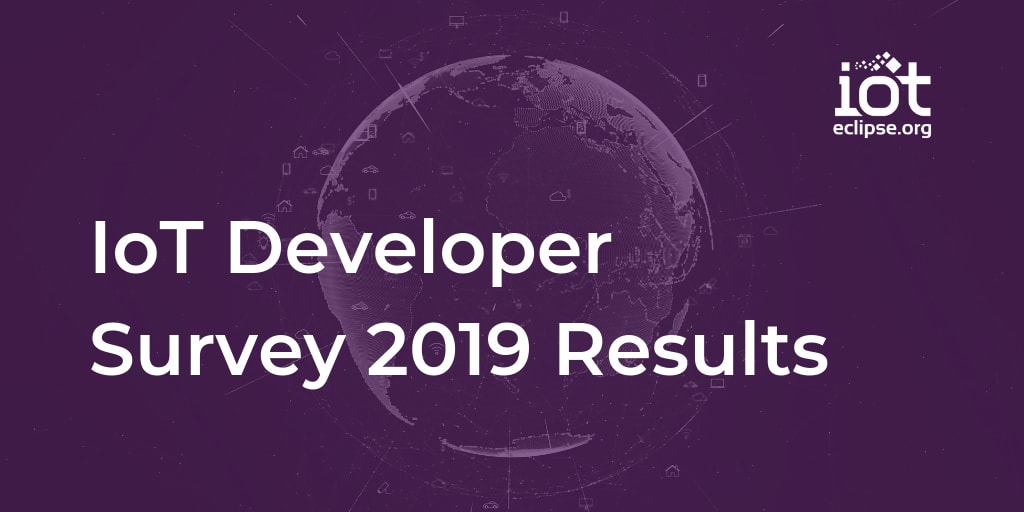Eric Jensen
on 26 April 2019
Ubuntu is the #1 embedded Linux for IoT
The results are in! Eclipse.org recently published their 2019 IoT Developer Survey. Ubuntu is again the top choice for embedded & IoT, with our cousins Raspbian and Debian taking 2nd and 3rd respectively. The numbers fall off pretty steeply after that. 😉

For those who create embedded products or solutions, the message couldn’t be more clear. If you’re looking for an embedded Linux OS with long-term maintenance, hardware certification, and commercial support, Ubuntu is your choice. Even if you haven’t deployed Ubuntu yet, there’s a good chance your developers are using it already, for prototyping or side-projects. When you give them what they want, you not only gain the aforementioned benefits, you’ll make your developers happy, which has a whole list of possible upsides. Shorter timelines, cooler products, and increased developer referrals to name a few.
This latest validation of Ubuntu’s excellence is certainly something to celebrate, but some of you may be wondering: why is Ubuntu so popular? Is it the clever release names? The beautiful UX? The witty, charming, life-of-the-party product managers? Apart from that last one (wishful thinking), those things do contribute to our success. But in embedded and IoT there are other factors that play a larger role. Turns out, many of them can be found right in the very same survey we were just talking about! I’ll highlight a few of my favorites here.*

First, let’s look at the list of top developer concerns on page 7. The number one concern is security, as it should be. In honor of this, I want to give a shout-out to our security team, because they’re amazing! You don’t have to take my word for it, their track record speaks for itself. This is a good time to point out, the Eclipse survey is for embedded and IoT device operating systems only. Separately, Ubuntu is also the #1 choice for developers on their laptops and desktops, and the #1 choice in the cloud as well. This is not the first time we’ve come out on top, just the most recent.
One of the main things driving our success is a borderline-obsessive security focus. It permeates our company culture, but is particularly embodied by the security team. These folks work very hard to deliver fixes for critical issues in the shortest time possible, and it shows in the stability and reliability of our operating systems. If you’d like to know more about our security team and the work they do, you should follow them on twitter, and check out a postcast or two.
Before we move on, let’s spend a moment on the other 2 top concerns, connectivity and analytics. Another major reason people choose Ubuntu is our package ecosystem. We all know the latest and greatest apps, toolkits, and frameworks run in Ubuntu first, and sometimes only. This was a common refrain from the developers I spoke to at Hannover Messe a few weeks ago.
Now let’s jump to the slide on page 16: Non Linux OSes. The main observation here is, barring a few small outliers, non-Linux usage continues to decline. This is unsurprising as Linux continues to mature and be, well, free. 🙂 One particularly interesting stat is the steep drop in “No OS / Bare metal” year over year. It may be tempting to attribute this to Moore’s Law in a generic fashion. But I think there’s a more specific reason, namely our friends over at Raspberry Pi, and their continued success in delivering a phenomenal family of products at unheard-of prices! Why mess around with assembly when you can have a full stack on your rPi (running Ubuntu, natch) for a couple bucks?

Another thing that struck me was slide 19, the split between Intel/x86 and ARM for industrial gateways. The astute reader will note that the numbers add up to over 100%! This is no error, it simply means that many people who took the survey are using both architectures. This is another area where Ubuntu shines, especially when using snaps, which take the pain out of multi-arch quite effectively. Snap-enabled developers often prefer to get started prototyping directly on their laptop, which is also running snapd, knowing they can easily switch to an embedded hardware platform any time.
Last slide for today is 25, the list of top programming languages for IoT. I count 6 different languages there, enough to give any engineering leader headaches! Unless of course, your shop is running Ubuntu, and your developers can easily manage their own tools via freely available snaps or debs of the very latest of everything, for those 6 languages and dozens more.

I want to close back at the beginning, up on page 6, where they highlight IoT adoption. Fully two-thirds of respondents have either deployed IoT solutions or are actively planning to do so. That’s a healthy majority, and speaks to how important embedded, IoT and edge computing has become. IoT has only begun the process of transforming the computing landscape. As adoption continues to grow, it will effect dramatic changes across IT, OT, business strategy and planning. Change can be stressful. We’re here to help you make sense of everything, by providing the same solid foundation you’ve come to depend on elsewhere.
That’s all for now! If you want to keep learning about Ubuntu in the embedded space, check out my previous blog post the path to Ubuntu Core.
* page numbers reference the actual pages of the PDF, shown lower-right, not the numbers some slides have top-center




